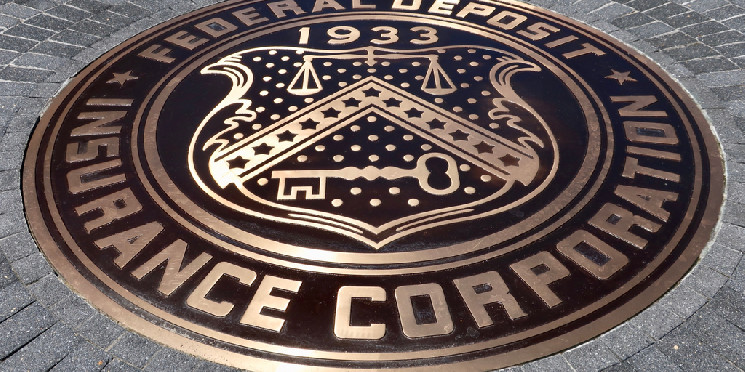Coinbase declared vindication on Friday, claiming that newly disclosed correspondences between the Federal Deposit Insurance Corporation (FDIC) and member banks help prove that the U.S. government has been secretly waging a war on crypto for years.
But what exactly do the documents reveal?
Coinbase has long pushed for the FDIC to disclose how it has communicated with American banks about crypto. On Friday, the company—and the public—got some answer to that question, with the FDIC publishing 23 letters it sent to member banks about crypto in 2022, in compliance with a request filed by Coinbase under the Freedom of Information Act (FOIA).
The letters, which are heavily redacted, show how the FDIC instructed banks considering crypto-related products and services to refrain from offering those activities until the agency determined how to properly regulate them.
“We respectfully ask that you pause all crypto asset-related activity,” the FDIC instructed one bank in March 2022.
The letters reveal that the FDIC made several such appeals to banks across the United States in 2022.
While it was previously known that the FDIC instructed all banks under its supervision in early 2022 to immediately inform the agency of any plans to engage in “crypto-related activities,” it was not clear whether the FDIC had specifically instructed banks to halt such activity.
In multiple FDIC letters published Friday, the agency said it would reach a verdict about the permissibility of such crypto-related activity only after completing a detailed review. The letters do not reveal if the FDIC ever completed such a review, or what the conclusion of that process might have been.
Paul Grewal, Coinbase’s chief legal officer, celebrated the revelations on Friday, arguing on X (formerly known as Twitter) that they constituted proof of the existence of “Operation Chokepoint 2.0”—a long-held theory among crypto leaders that the U.S. government has not just discouraged major financial institutions from dealing in crypto for years, but has also debanked crypto companies and executives as a means to strangle the industry.
Re: the letters that show Operation Chokepoint 2.0 wasn’t just some crypto conspiracy theory. @FDICgov is still hiding behind way overbroad redactions. And they still haven’t produced more than a fraction of them. But we finally got the pause letters: https://t.co/Me41BXpbdF…
— paulgrewal.eth (@iampaulgrewal) December 6, 2024
“Law-abiding American businesses should be able to access banking services without government interference,” Grewal wrote on X on Friday.
But none of the FDIC letters published on Friday mention any policies related to debanking crypto-involved customers. They only appear to discuss the prospect of American banks getting into offering crypto-related services themselves.
Decrypt reached out to Coinbase regarding that potential tension; a company spokesperson said Grewal’s X post laid out the company’s position on the subject.
A source familiar with the company’s thinking told Decrypt, though, that while the FDIC letters did not explicitly mention debanking, it could be reasonably concluded that banks concerned about following the agency’s instructions to halt “crypto-related activities” might have frozen the accounts of crypto companies and executives, to proactively ensure they did not get into trouble or lose FDIC backing.
“Think about the uncertainty those banks must have felt when receiving those letters,” the source said.
The source added that while they found the revelations in Friday’s FDIC letters to be “quite remarkable,” they are confident that there is more evidence to be found directly tying the debanking of crypto leaders to U.S. government directives.
Numerous crypto industry founders and executives have traded their own personal and corporate debanking stories in recent days, spurred by Andreessen Horowitz co-founder Marc Andreessen claiming on Joe Rogan’s podcast last week that over 30 industry founders have lost access to banking during Joe Biden’s presidency.
Numerous crypto industry leaders, including Custodia Bank CEO Caitlin Long and Coinbase’s own CEO, Brian Armstrong, responded soon after by sharing their own experiences of being debanked.
It is certainly plausible that those instances could be connected to the FDIC’s push to halt crypto-related activities in member banks, as revealed in Friday’s declassified letters. The excerpts of those letters published today don’t quite make that connection, but Coinbase and other industry leaders appear dogged in still seeking to uncover that smoking gun.
Edited by Andrew Hayward
Read the full article here

